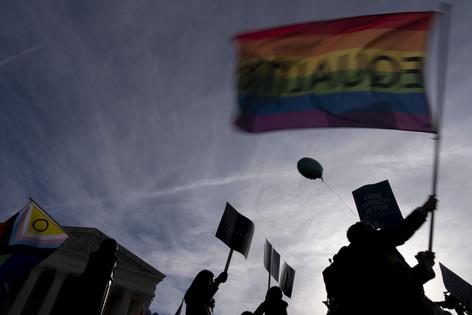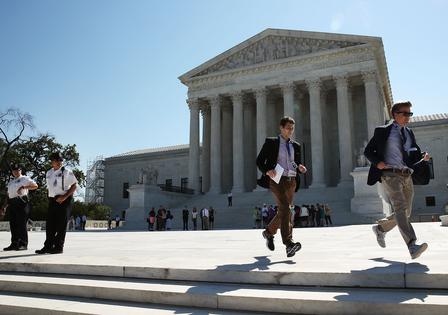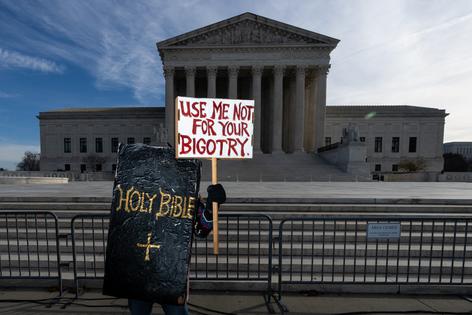Supreme Court signals sympathy with web designer opposed to same-sex marriage in free speech case
Published in News & Features
In front of the Supreme Court justices on Dec. 5, 2022 was 303 Creative LLC v. Elenis – a major case regarding LGBTQ rights and free speech.
The petitioner, Colorado-based web designer Lorie Smith, is looking to expand her business, 303 Creative, by making wedding websites for couples that consist of one man and one woman. She wants to refuse wedding website services to same-sex couples planning to marry. Smith also wants to write on the 303 Creative website that she has been called by God to make wedding websites only for mixed-sex couples in order to promote “God’s true story of marriage.”
This would appear to violate the Colorado Anti-Discrimination Act, a state law that protects against sexual-orientation discrimination in places that offer goods and services to the public.
Smith claims the law violates her First Amendment free speech rights. The state of Colorado disagrees. The U.S. 10th Circuit Court of Appeals also sided with Colorado in July 2021.
During Dec. 5’s hearing, Supreme Court justices posed questions that provide some insight into what they think is legally relevant. The court’s conservative justices – who hold a majority on the bench – appeared sympathetic to Smith’s arguments.
As a scholar who pays close attention to the Supreme Court’s free speech and LGBTQ civil rights cases, I believe the case could have a significant impact on how federal courts handle cases where free speech rights appear to clash with anti-discrimination laws in the future.
Here are three key recurring themes that played out during the case’s day before the court:
The opening question in oral arguments came from Justice Clarence Thomas, who asked Smith’s lawyer, Kristen Waggoner, to explain whether or not this case is ripe. In the law, a case is “ripe” when it is ready for litigation.
This question is particularly relevant because Smith does not yet offer wedding websites services and no charges have been brought against her under Colorado’s anti-discrimination law.
Rather, Smith is seeking a pre-enforcement judgment from the court declaring that it would be a violation of the First Amendment for Colorado to compel her to provide wedding websites to same-sex couples were she to provide wedding websites to mixed-sex couples.
...continued













Comments